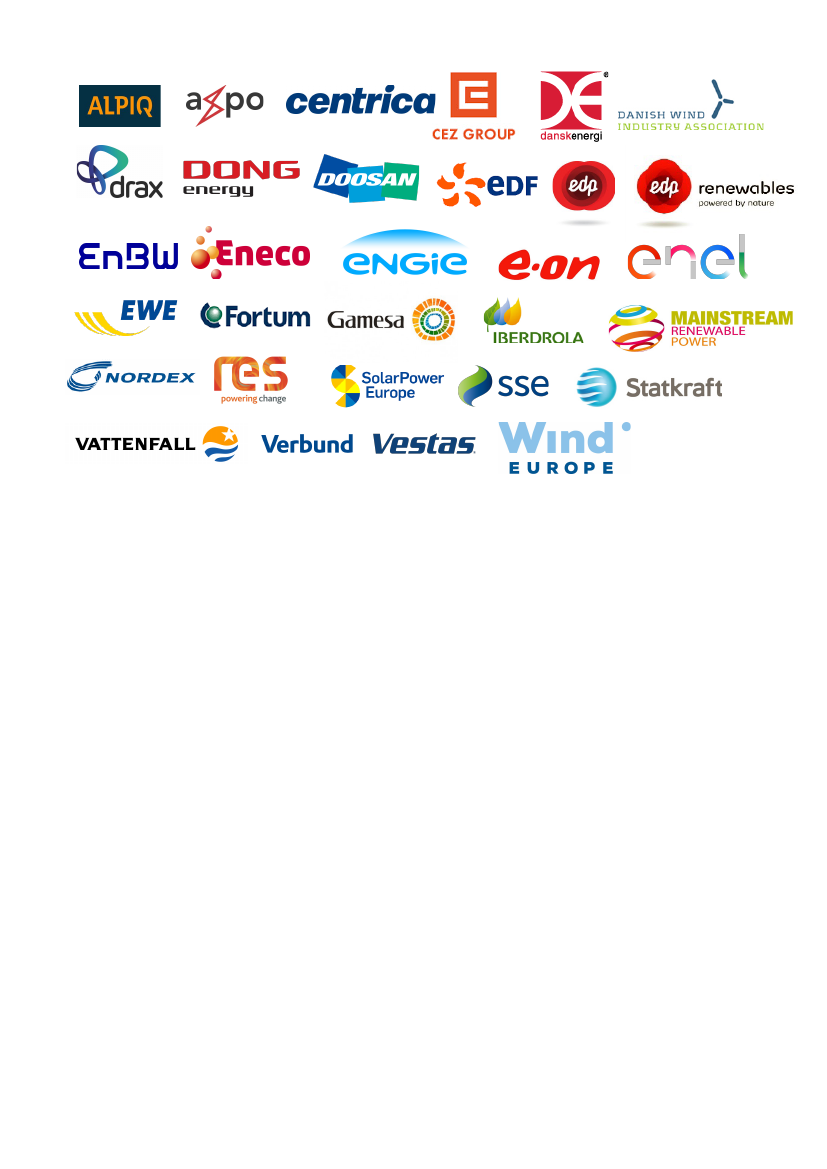
9 June, 2016
Dear Members of the European Parliament and the Council,
Making the EU ETS relevant after the Paris Agreement
The Paris Climate Change Agreement was an important step towards mitigating the worst impacts
of climate change and making a global transition to a low carbon economy. The EU played a critical
role in delivering a successful deal by leading the high ambition coalition, and this should continue
going forward.
To honour this agreement, the EU needs to implement legislation to reach its agreed 2030 climate
and energy targets. Despite adopting measures such as backloading, the Market Stability Reserve
(MSR) and an increased Linear Reduction Factor (LRF), the surplus of allowances will continue to
depress the market in the short to medium term, keeping ETS ineffective as a robust carbon price
signal until late into the 2020s.
We, a cross industry group of companies, involved in energy, industrial and financial sectors, urge
you to use the current revision of EU ETS to deliver the required low carbon investment signals to
meet the long term objective agreed in Paris.
For 2020 UNFCCC discussions, the EU should consider
closing the emissions gap towards 1.5°C by increasing its 2030 and 2050 target by aligning the LRF.
This
would enable the cost effective decarbonisation of the European economy whilst ensuring the
competitiveness of those industries at genuine risk of carbon leakage.
Specifically, we support the following measures to deliver a meaningful carbon price signal through
the ETS:
1.
Restoring the ETS to relevance in the near term:
The ETS is being depressed by the existing
surplus of allowances, and this will be exacerbated by a glut of allowances due in 2017 and 2018.
The gap between backloading finishing in 2016 and the MSR starting in 2019 should be
Page 1 of 2